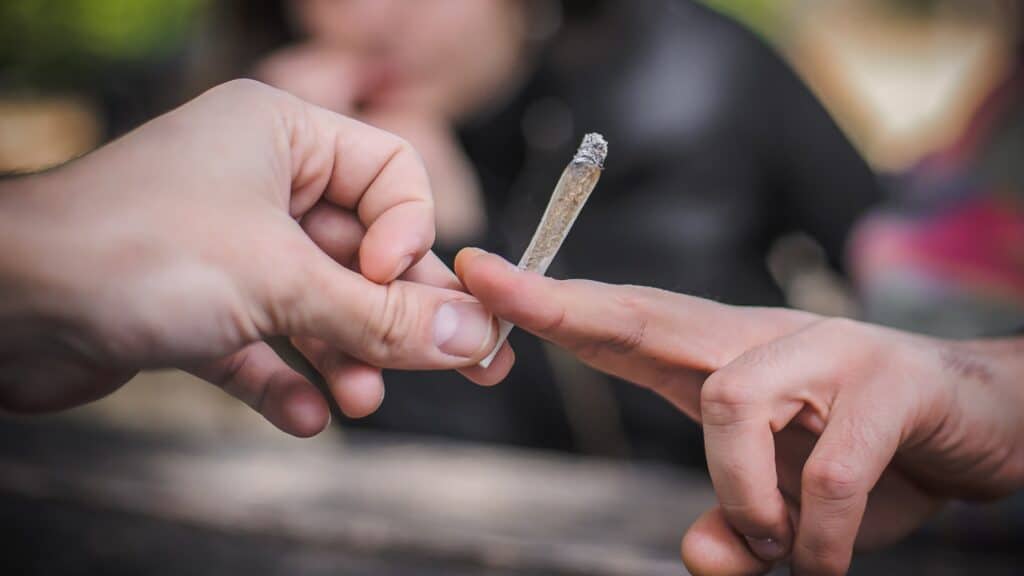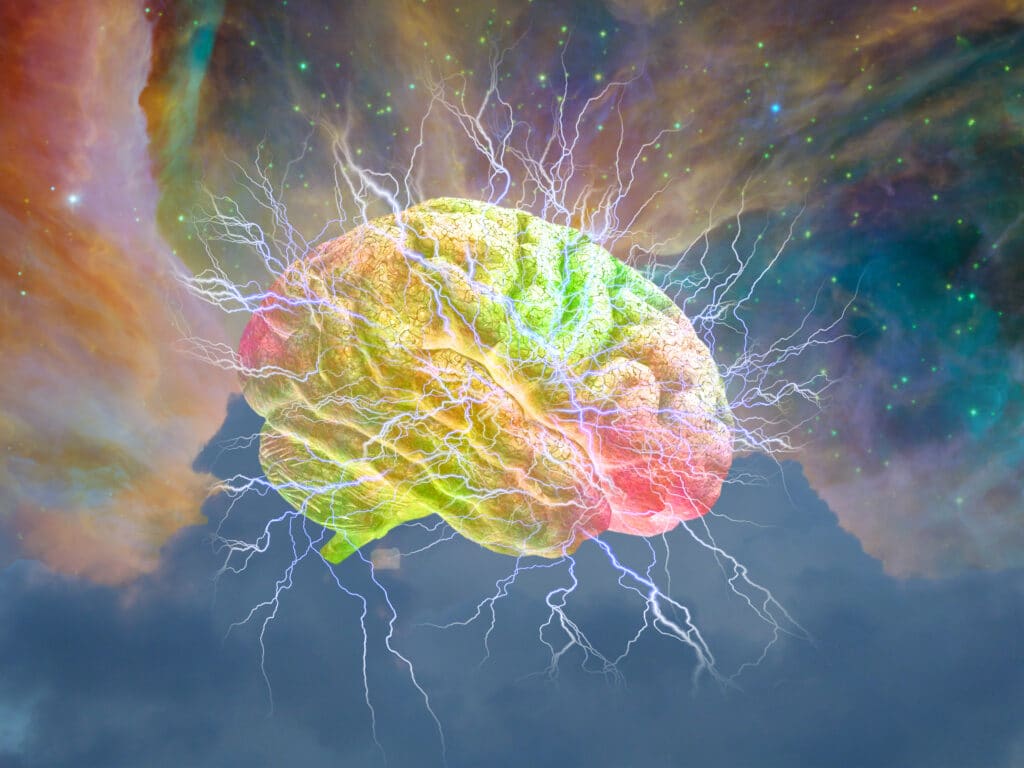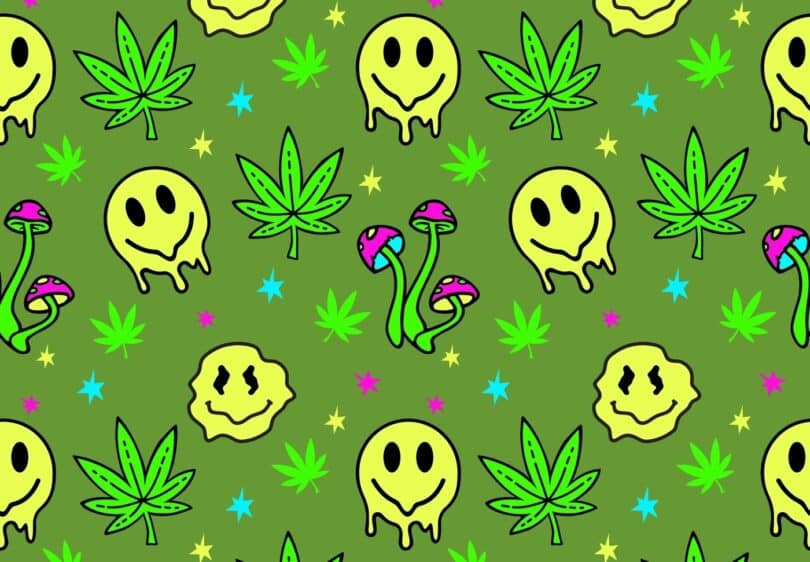Cannabis legalization has sparked some heated debates throughout the last decade over whether a once-illegal substance could truly have medical benefits, and if it should be accessible to the general public. And when you think about the full history of cannabis prohibition, you realize how long it really took to enter the mainstream. One would assume that psychedelics will follow the same pattern, but so far, we’re seeing very little of the same pushback. Why is that? Let’s take a closer look.
The mainstreaming of cannabis and psychedelics
Marijuana and psychedelics are both Schedule I substances, defined as having “high addictive potential and no current accepted medical use”. However, both cannabis and psychedelics are viewed much more favorably than other illicit substances.
For example, roughly half of Americans (around 78 million people) claim to have used cannabis at some point in their lives, and over 35 million report using cannabis products on a monthly basis. Another 55 million Americans say they have used pot in the last year. That’s more than the number of active tobacco smokers (an amazing feat), which has been on the steady decline. This data comes from a Yahoo News/Marist national survey.

When it comes to psychedelics, it seems those numbers are on the rise too. Recent polling by YouGov found that around 28 percent of Americans have tried at least one of the seven most commonly used hallucinogenic drugs, which are: LSD (acid), Psilocybin (mushrooms), MDMA (ecstasy), Mescaline (peyote), Ketamine, DMT, and Salvia.
The largest number of respondents report having used LSD (14 percent), psilocybin (13 percent), and MDMA (9 percent) and mescaline (8 percent). The numbers for the other substances were a bit lower with ketamine and DMT both at 6 percent, and salvia with 5 percent. It’s likely that the numbers for ketamine would be higher if the poll were to be done again in another year or two, with the uptick of ketamine therapy centers we’ve been seeing lately.
Is cannabis really being used medicinally?
Most Americans support cannabis legalization, there’s no question about that. As a matter of fact, only 10% of people living in the United States think it should remain illegal. Now, this is where the numbers get interesting. According to the most recent data, 30 percent of people support legalization for medical use only, whereas an overwhelming 60 percent think it should be completely legal, for both medical and recreational purposes.
And this all stems from how Americans view and use cannabis themselves. Overall, it’s hard for most people to accept the idea of medical marijuana use. Despite the decades of research done on it, in the US, it’s still used largely independently, in unsupervised conditions. It’s consumed in ways that aren’t really conducive to medical use (smoking mainly, which is the most common yet unhealthiest way to use it). It’s purchased in dispensaries which, more often than not, have a vibe that’s chill, fun, stoner, and recreational.
Data from a past National Survey on Drug Use and Health (NSDUH) found that 17% of adults who used cannabis in the past year used cannabis medically. There were no significant differences between those who used medically versus recreationally in race, education, past year depression and prevalence of cannabis use disorders. Adults who use medical and recreational cannabis shared some characteristics, but those who used medical cannabis had higher prevalence of poor health and daily cannabis use.
Of course, there are some benefits to using cannabis, regardless of how you choose to do so. It certainly helps with things like sleep, nausea and pain, and it can be useful for treating mental disorders as well. But it’s still not quite what I would consider a medical substance. Therapeutic, yes; but the potential for major life changes is far less with cannabis than psychedelics. For me personally, pot helps immensely with my anxiety and depression, but I still view myself as a recreational user overall.
Psychedelics: A breakthrough for mental health

While the cannabis movement hit many roadblocks on its way to gaining wider acceptance, it’s been mostly smooth sailing for psychedelics reform. And even though this article is mainly about the US, we’re seeing the same trends in other countries as well; like Australia for instance, which became the first country to officially legalize MDMA and psilocybin for medical use, but adult-use cannabis is still illegal.
And not only are American citizens in support of psychedelic-assisted therapy, but there’s bipartisan support in congress, a growing body of scientific research, a booming industry with products and trade shows, high profile endorsers, and dedicated activist and patient groups like mental health advocates and veterans suffering from PTSD. This is because the discussion around hallucinogens has been primarily focused on supervised, controlled therapeutic use, rather than recreational use for anyone over a certain age.
“One of the biggest differences is that the cannabis movement went through state governments to first decriminalize the plant, then medicalize it, and then … recreational use came after that. Psychedelics are primarily going through the FDA and medical research”, said Jason Ortiz, executive director of the advocacy group Students for Sensible Drug Policy.
Furthermore, our nation is in the midst of a startling mental health crisis – from the opioid epidemic, growing rates of depression and suicide, teen and childhood anxiety on the rise, and the list goes on. It’s estimated that one in four American adults are living with some type of mental illness. Pharmaceutical antidepressants often don’t work and come with a slew of negative side effects, so people are seeking alternatives. The potency and powerful effects of psychedelic drugs, when compared to cannabis, make them more promising treatment options in this realm, as they have the ability to rewire the brain in ways that other substances simply cannot.
Final thoughts
At the rate we’re going, it wouldn’t be entirely surprising to see medical psychedelics legalized at the federal level, before recreational cannabis. It seems difficult for people to wrap their heads around the idea of cannabis being used medicinally. And for some odd reason, things that make us feel good or are simply fun, are often viewed as being wrong, so our government is reluctant to permitting adult cannabis use just for the sake of letting us have something we want. Medical psychedelics seem to have a stronger foothold in research and FDA approvals, so it will be interesting to see how long it takes before psilocybin or MDMA become federally legal.
Hello readers. We’re happy to have you with us at Cannadelics.com; a news source here to bring you the best in independent reporting for the growing cannabis and hallucinogen fields. Join us frequently to stay on top of everything, and subscribe to our Cannadelics Weekly Newsletter, for updates straight to your email. Check out some awesome promos for cannabis buds, smoking devices and equipment like vapes, edibles, cannabinoid compounds, amanita mushroom products, and a whole bunch more. Let’s all get stoned together!










I really think that the Virginia cannabis laws need to be rethought about cause alot of businesses have had to shut down or lost over half there business and income like southwest Virginia could really afford to lose what little business we have here it’s ridiculous